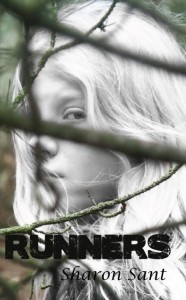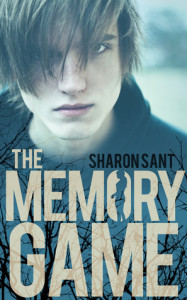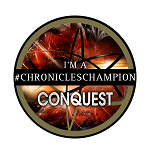Dystopian fiction and Runners
The Oxford dictionary defines dystopia as: ‘an imagined place or state in which everything is unpleasant or bad, typically a totalitarian or environmentally degraded one. The opposite of Utopia.’
Unpleasant and bad are the tools of many a writer’s trade, and so the town of Dystopia sounds like a perfect place to set a novel. And it seems that I’m not the only one who thinks so. I’ve been reading reports for some time now about how agents and publishers are sick of dystopian novels landing on their desks. According to them, since The Hunger Games, we’ve gone dystopia crazy. I hate to burst that industry bubble, but I don’t think that dystopia is going away any time soon. In fact, I don’t think it was ever really missing from the cultural landscape in one form or another. Thinking back to novels like 1984, even as far back as The Time Machine by H G Wells or Aldous Huxley’s Brave New World, it’s clear that we’ve always been fascinated by the ideas of dystopia. As a narrative tool, dystopia can hold a mirror up to our own society to make all sorts of political and social statements, or it can be used simply to issue warnings, the latter being closely linked and often overlapping with speculative fiction like Margaret Atwood’s Oryx and Crake. For me, however, it also represents a society where the normal rules of our world no longer apply. Like fantasy, dystopia is a setting that you can manipulate; it presents the opportunity to create a world that enables your story to unfold how you want in order to propel the plot. You want kids beating each other to death on a TV show? In a dystopian society you can make this entirely plausible.
When I first had the idea for my dystopian novel, Runners, (way back in 2007, and it seems like a lot longer!) I knew straight away what the setting would be: a near-future Britain where the current economic hardships and climate change had progressed to their worst possible scenarios. I’m a huge fan of fantasy in realist settings and for me this was just perfect. There are no silver-clad futuristic cities, no radiation-soaked skies full of spacecraft, no mutated humanoid species in Runners – all fantastic settings and scenarios for dystopian fiction, of course – there’s just a crumbling version of a contemporary Britain and a poverty-stricken population that no longer cares what happens to anyone. I took a lot of my ideas from periods of austerity in history, so there are Victorian-like features such child labour and workhouse-type institutions, and then there’s rationing like during the Second World War. These things have already happened in real life and just because they’ve gone away, it doesn’t mean they can’t come back. Because in real life, just the tiniest false step from the people in charge and we could actually find ourselves living there. It’s a scary prospect for us but a perfect dystopia for a book.
I think that some of the best fictional dystopias are the ones almost close enough for our society to touch, the ones where you can easily imagine yourself living there. Let’s look again at 1984. On the surface an unremarkable, if slightly grim, representation of 20th century life. But when you scratch beneath the surface you find it’s all kinds of weird. Whilst there are no outward signs of dystopian control, it’s all about what’s going on behind closed doors, about controlling the populace from within their own psyches. It’s so easy to imagine ourselves there, and, tellingly, people frequently relate back to 1984 when discussing government control in the real world, over sixty years after the novel was first published. Orwell’s vision was remarkable when we look at how close he came to what we have now, but that’s what makes it so compelling.
About Sharon Sant:
Sharon Sant was born in Dorset but now lives in Stoke-on-Trent. Aged eight she wrote a poem about ET, which received the ultimate praise of being pinned onto the classroom wall, and from that moment on she knew she’d never stop writing. She graduated from Staffordshire University in 2009 with a degree in English and creative writing. She currently works part time as a freelance editor and continues to write her own stories. An avid reader with eclectic tastes across many genres, when not busy trying in vain to be a domestic goddess, she can often be found lurking in local coffee shops with her head in a book. Sometimes she pretends to be clever but really loves nothing more than watching geeky TV and eating Pringles. Young adult novels Sky Song, The Young Moon and Not of Our Sky (the Sky Song trilogy), The Memory Game and Runners were all released in 2013 to glowing reviews. She is currently working on a series of Runners prequel stories, the first of which is scheduled for release 2014.
Follow Sharon on Twitter here: https://twitter.com/SharonSant
Purchase information: http://www.amazon.co.uk/Sharon-Sant/e/B00B0W6FHE/ref=sr_ntt_srch_lnk_1?qid=1396421819&sr=1-1
Happy Reading Folks!








